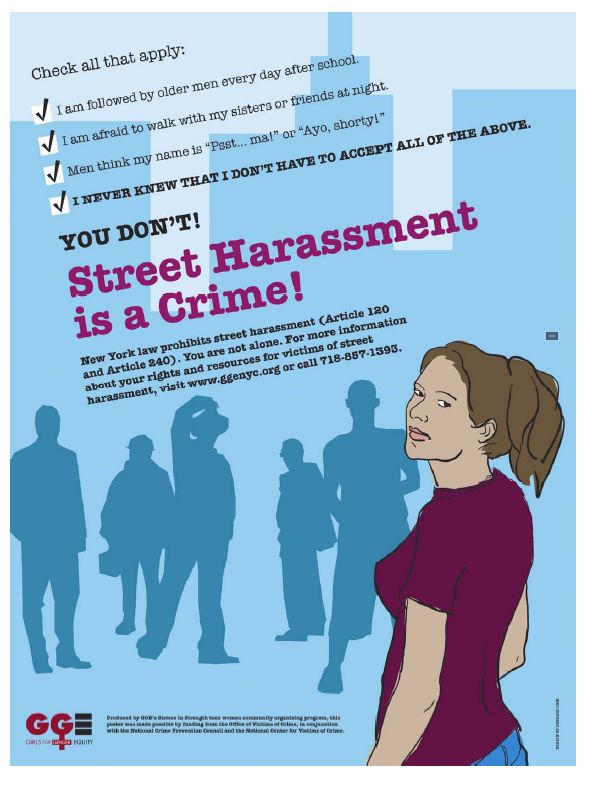Report on Allegations of Abuse and Neglect at Therapeutic Programs in Western North Carolina
Introduction
A former camper, identified as R.B., who attended two now-closed therapeutic programs in Western North Carolina—Trails Carolina and Asheville Academy for Girls—has filed a lawsuit alleging abuse and neglect. These allegations raise significant concerns related to the protection and well-being of children, directly impacting several Sustainable Development Goals (SDGs), including SDG 3 (Good Health and Well-being), SDG 4 (Quality Education), and SDG 16 (Peace, Justice, and Strong Institutions).
Background of the Lawsuit
- R.B. attended Trails Carolina, a wilderness therapy camp, for 77 days starting in 2016 at age 14, followed by an 11-month enrollment at Asheville Academy for Girls.
- The lawsuit, filed on June 20 in U.S. District Court in North Carolina, accuses the owner, Family Help & Wellness, of deceptive marketing and abusive practices causing permanent psychological harm.
- Specific allegations include physical and sexual assault, forced labor, and neglectful treatment such as being forced to wear diapers and endure harsh conditions during hikes.
Details of Abuse and Neglect
- R.B. was subjected to forced labor activities including clearing brush, laying railroad tracks, and building stables offsite at Asheville Academy.
- Physical and sexual assaults were reported during the time at both programs.
- Staff allegedly humiliated R.B., limited therapy to no more than one hour per week, and imposed punitive measures such as restricting access to food, water, and hygiene.
- These conditions violate the rights of children to safety, dignity, and adequate care, undermining SDG 3 and SDG 16.
Program Closures and Investigations
- Trails Carolina closed in 2024 following the death of a 12-year-old camper due to suffocation in a bivy tent.
- Asheville Academy closed in June 2025 after two children died by suicide within a month; state investigations revealed violations of statutes and licensing rules.
- The state imposed $45,000 in administrative penalties on Asheville Academy’s owners.
Legal and Advocacy Responses
- The lawsuit seeks compensatory and punitive damages under state and federal law.
- Attorney Keith Smith of Justice Law Collaborative emphasized the failure of these programs to provide promised safe and supportive environments, highlighting the need for accountability and justice (SDG 16).
- Family Help & Wellness has not responded to requests for comment.
Other Related Lawsuits
- Additional lawsuits have been filed against Trails Carolina alleging sexual abuse by staff and other campers.
- These cases further illustrate systemic issues within therapeutic programs and the urgent need for regulatory oversight to protect vulnerable children (SDG 16).
Emphasis on Sustainable Development Goals (SDGs)
SDG 3: Good Health and Well-being
- The physical and psychological abuse reported severely undermines the health and well-being of children.
- Limited access to therapy and punitive treatment contradict the goal of ensuring healthy lives and promoting well-being for all ages.
SDG 4: Quality Education
- Therapeutic programs are expected to support learning and development; however, neglect and abuse impede educational and personal growth.
- Ensuring safe, inclusive, and effective learning environments is critical for achieving SDG 4.
SDG 16: Peace, Justice, and Strong Institutions
- Accountability for abuse and neglect is essential to promote justice and protect children’s rights.
- Legal actions and state investigations contribute to strengthening institutions responsible for child protection.
- Preventing violence and abuse aligns with the goal to promote peaceful and inclusive societies.
Support Resources and Legal Framework
Legal Limitations and Protections
- The N.C. SAFE Child Act (2019) allows survivors of child sexual abuse to file lawsuits until age 28 in state court.
- In 2022, the federal statute of limitations for such cases was eliminated, enhancing access to justice.
Available Support Services
For individuals affected by abuse or in crisis, the following resources provide assistance in Western North Carolina:
- 988 Suicide and Crisis Hotline: Free 24/7 support via call at 988 or 800-273-8255.
- Mountain Child Advocacy Center: Therapy and education for abused children and families. Call 828-213-9824.
- Our Voice: Asheville rape and sexual assault crisis center for ages 13 and older. 24-hour hotline at 828-255-7576 or text VOICE/VOZ to 85511.
- Buncombe County Family Justice Center: Call 828-250-6900 or visit 35 Woodfin St., Asheville.
- RAINN (Rape, Abuse and Incest National Network): National Sexual Assault Hotline at 800-656-4673 or online chat at online.rainn.org.
Conclusion
The allegations against Trails Carolina and Asheville Academy highlight critical failures in child protection within therapeutic programs. Addressing these issues is vital to uphold the Sustainable Development Goals related to health, education, and justice. Continued legal action and institutional reforms are necessary to ensure safe environments for vulnerable children and to prevent future harm.
1. Sustainable Development Goals (SDGs) Addressed or Connected
- SDG 3: Good Health and Well-being
- The article highlights issues of mental health, abuse, neglect, and suicide among children in therapeutic programs, directly relating to ensuring healthy lives and promoting well-being.
- SDG 4: Quality Education
- The failure of therapeutic programs to provide promised care and education, including inadequate therapy and harmful practices, connects to the goal of inclusive and equitable quality education.
- SDG 16: Peace, Justice and Strong Institutions
- The lawsuits and calls for accountability address issues of justice, protection of children from violence, and strengthening institutions to prevent abuse.
- SDG 5: Gender Equality
- Given the sexual abuse allegations, especially at Asheville Academy for Girls, the article relates to eliminating violence against women and girls.
2. Specific Targets Under Those SDGs Identified
- SDG 3: Good Health and Well-being
- Target 3.4: Reduce premature mortality from non-communicable diseases and promote mental health and well-being.
- Target 3.5: Strengthen the prevention and treatment of substance abuse and mental health disorders.
- Target 3.8: Achieve universal health coverage, including access to quality essential health-care services.
- SDG 4: Quality Education
- Target 4.5: Eliminate gender disparities and ensure equal access to all levels of education and vocational training.
- Target 4.a: Build and upgrade education facilities that are child, disability and gender sensitive.
- SDG 16: Peace, Justice and Strong Institutions
- Target 16.2: End abuse, exploitation, trafficking and all forms of violence against and torture of children.
- Target 16.3: Promote the rule of law and ensure equal access to justice for all.
- SDG 5: Gender Equality
- Target 5.2: Eliminate all forms of violence against women and girls in public and private spheres.
3. Indicators Mentioned or Implied to Measure Progress
- Indicators related to SDG 3
- Number of deaths by suicide among children in care facilities (implied by the reported child deaths).
- Access to mental health services (implied by the limited therapy hours and unlicensed staff).
- Incidence of abuse and neglect in health and therapeutic settings.
- Indicators related to SDG 4
- Quality and availability of therapeutic and educational services in child care facilities.
- Number of trained and licensed staff providing care and therapy.
- Indicators related to SDG 16
- Number of reported cases of child abuse and neglect in institutions.
- Number of legal actions and penalties against institutions violating child protection laws.
- Existence and enforcement of child protection laws and licensing regulations.
- Indicators related to SDG 5
- Incidence and reporting rates of sexual violence against girls in care facilities.
- Availability of support services for survivors of sexual violence.
4. Table of SDGs, Targets and Indicators
| SDGs | Targets | Indicators |
|---|---|---|
| SDG 3: Good Health and Well-being |
|
|
| SDG 4: Quality Education |
|
|
| SDG 16: Peace, Justice and Strong Institutions |
|
|
| SDG 5: Gender Equality |
|
|
Source: citizen-times.com







